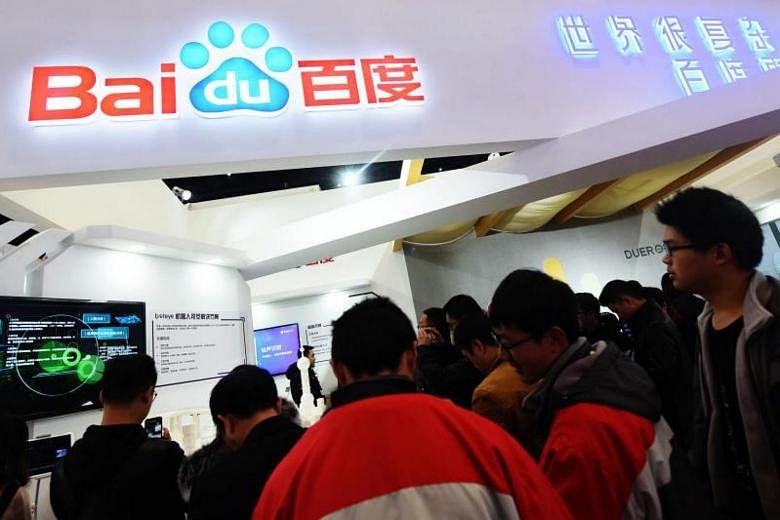WUZHEN - From meeting the credit needs of a farmer in Jiangsu to those of a start-up being run out of a San Francisco garage, leaders of fintech companies shared on Tuesday (05/12) how technology and data have already changed the way banking and finance works.
Technologies like big data and artificial intelligence (AI) are helping to resolve two core issues in lending: providing a better estimate of risk, and in building trust, industry experts said at a panel discussion on the final day of the World Internet Conference here.
Baidu, for instance, has tapped on big data and AI to measure the credibility of small and medium enterprises to offer them tailored loans, said the search engine's senior vice president Zhu Guang.
Mr Zhu cited a crab farmer in Jiangsu who had been advertising with Baidu for eight years. This year, Baidu offered him a loan of five million yuan ($xx) to expand his business, which was promptly repaid after he posted record revenues of over 100 million yuan.
"How did we do this? We did risk management of his operations, and through big data analysis we made the decision that we could provide loans to him," said Mr Zhu.
He added that the same technologies had also helped less academically-inclined students obtain loans to attend vocational colleges. Such loans would have been rejected previously.
JD Finance CEO Chen Shengqiang said that historic data, such as a farmer's crop yields in the past, had eliminated the need for loan collateral thus lowering barriers to capital access.
Fintech can also benefit the fledgling start-up. AngelList, a platform that connects start-ups to angel investors, pointed to how digitisation and analytics helped thousands of freshly-minted US companies comply with government filing requirements even as they were matched with suitable early-stage investors.
Among its early successes was the funding of Uber back in 2010, when "it was doing ten rides a night in the city of San Francisco", said CEO Kevin Laws.
The speed of change means there are many more opportunities on the horizon for fintech firms to disrupt traditional banks, said the experts. They pointed to how technology like blockchains - distributed ledgers that are highly resistant to tampering and make all transactions transparent - could make trust even easier to build.
"The essence of finance is...how do you give trust to a person you've never met?" said Mr Soul Htite, CEO of online lending marketplace, Dianrong.
"There's a huge opportunity today because of systems like big data that allows us to predict the future, and systems like blockchain that allows us to write data and never change it."
To guide the development of the Internet in the coming years, the Chinese Academy of Cyberspace Studies (CACS) on Monday (04/12) launched a new internet development index that it said fills a gap in existing measurements that "fail to reflect the big picture and overall trend of Internet development across the world".
The new index, which broadly measures countries' development in six areas - Internet infrastructure, innovativeness, industry development, Internet use, cyber security and Internet governance - had the US in pole position, followed by China and then South Korea.
The Global Internet Development Index provided quantifiable data for countries to assess their Internet development and "take corresponding measures", said the report.


